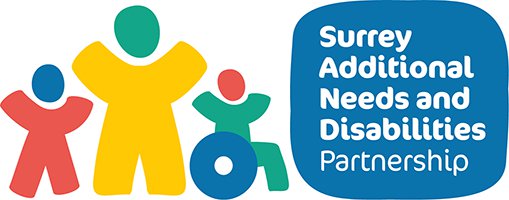Information about specific types of Special Educational Need
Special Educational Needs are generally thought of in the following four broad areas of need and support:
Page contents
- Communication and interaction
- Cognition and learning
- Social, emotional and mental health difficulties
- Sensory and/or physical needs
- Groups for young people
Communication and interaction
Children and young people with speech, language and communication needs (SLCN) have difficulty in communicating with others. This may be because they have difficulty saying what they want to, understanding what is being said to them or they do not understand or use social rules of communication. The profile for every child with SLCN is different and their needs may change over time. They may have difficulty with one, some or all of the different aspects of speech, language or social communication at different times of their lives.
Autistic Children and young people, with a diagnosis of Autistic Spectrum Disorder (ASD), may have difficulties with social interaction. They may also experience difficulties with language, communication and imagination, which can impact on how they relate to others
Cognition and learning
Support for learning difficulties may be required when children and young people do not make progress in their learning over a period of time. Learning difficulties cover a wide range of needs. These include:
- Moderate learning difficulties (MLD), where children need support in certain areas.
- Severe learning difficulties (SLD), where children are likely to need support in all areas of the curriculum and associated difficulties with mobility and communication.
- Profound and multiple learning difficulties (PMLD), where children are likely to have severe and complex learning difficulties as well as a physical disability or sensory impairment.
Specific learning difficulties (SpLD), affect one or more specific aspects of learning. This encompasses a range of conditions such as dyslexia, dyscalculia and dyspraxia.
Social, emotional and mental health difficulties
Children and young people may experience a wide range of social and emotional difficulties which manifest themselves in many ways. These may include becoming withdrawn or isolated, as well as displaying behaviour that challenges, disruptive, or disturbing behaviour. These behaviours may be as a result of another difficulty or reflect underlying mental health difficulties such as anxiety or depression, self-harming, substance misuse, eating disorders or physical symptoms that are medically unexplained. Other children and young people may have disorders such as attention deficit disorder, attention deficit hyperactive disorder or attachment disorder.
Sensory and/or physical needs
Some children and young people require special educational provision because they have a disability which prevents or hinders them from making use of the educational facilities generally provided. These difficulties can be age related and may fluctuate over time. This includes vision impairment (VI), hearing impairment (HI) or a multi-sensory impairment (MSI) which require specialist support and/or equipment to access their learning, or habilitation support. Children and young people with an MSI have a combination of vision and hearing difficulties.
If you are a young person with special education needs and disability (SEND), or the parent/ carer of a child or young person with SEND in Surrey, and would like to contribute your experience to creating resources about your SEND condition, please get in touch using the contact form.
Groups for Children and Young Adults with additional needs and their families
- Attention Deficit Disorder (ADD) and Attention Deficit Hyperactivity Disorder (ADHD)
- Autism
- Dyslexia, dyspraxia and dyscalculia
- Epilepsy
- Hearing impairment
- Moderate, severe or profound learning difficulties
- Multi-sensory impairment
- Physical needs
- Visual impairment
